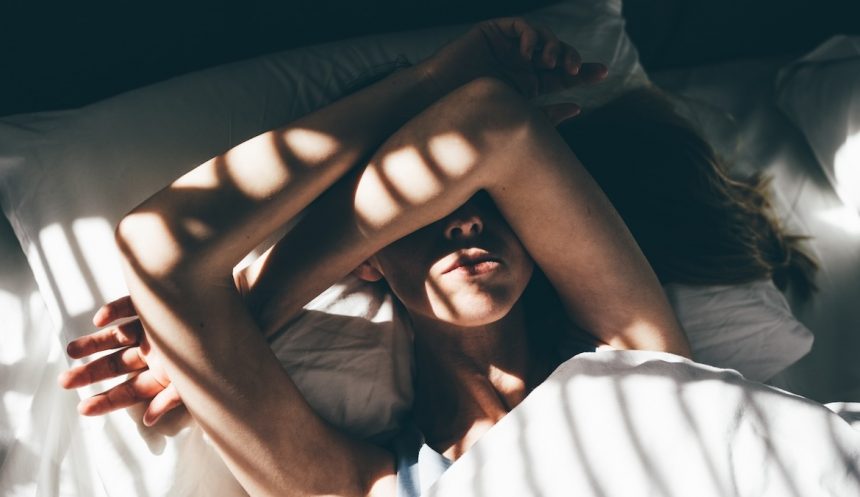If you’re jolted awake most mornings with a pang in your head, you know it’s quite possibly the worst way to start your day.
Morning headaches are no joke, and if you find yourself frequently wondering why do I wake up with a headache?, there could be plenty of possible culprits. Whether it’s from how you slept, not getting enough rest (learn all about that in Well+Good’s Rest Issue), or even taking too many headache meds, there are plenty of reasons your head might be pounding before you’ve even had your coffee.
1. Sleep apnea
“Morning headaches are significantly more common in those with sleep apnea,” says neurologist Nolan Pearson, MD, a headache medicine specialist at Cedars-Sinai. This condition happens when a person frequently stops breathing while they sleep, either because their airway is blocked (aka, obstructive sleep apnea) or their brain doesn’t properly control breathing (aka, central apnea). The connection between sleep apnea and morning headaches isn’t clear, though. Experts still don’t know if headaches in the a.m. are “caused by low oxygen, high carbon dioxide, or simply disrupted sleep,” Dr. Pearson says. Whatever the reason, morning headaches usually go away once you treat sleep apnea.
2. Your sleeping position
Your sleeping position might be the sneaky reason behind your pounding head. “Sleeping in a position that puts stress on your neck, especially if you have a history of cervical spine disease, can trigger tension headaches or musculoskeletal pain,” Dr. Pearson says. It may also worsen problems like cervical stenosis (when the space around your spinal cord becomes too narrow) or radiculopathy (when one of your nerve roots is compressed or irritated) that can lead to head and neck pain in the morning, he says. Sleeping on your side is usually best for keeping your spine and neck aligned, Dr. Pearson says.
3. Teeth grinding
Clenching or grinding your teeth during sleep, a condition called bruxism, can increase your risk of morning headaches. Typically, teeth grinding triggers tension headaches, Dr. Pearson says. It makes sense when you think about it: Gritting your teeth all night stresses muscles in your neck, jaw, and face. If this tension travels to your head, it can produce pain.
4. Migraine
“Up to 71 percent of people with migraines experience morning headaches,” Dr. Pearson says. “We know that migraines are generally more likely to occur in the morning (between 6 a.m. and 12 p.m.), and they can wake people from sleep,” he says. Emerging research suggests the timing of morning migraines might be linked to circadian rhythm, aka, your body’s 24-hour internal clock.
5. Lack of sleep
Running on empty? Not getting enough sleep could be the reason you’re waking up with those pesky morning headaches. Lack of sleep is linked to all kinds of head pain problems, from migraines to tension headaches. And if poor sleep turns into a habit, your headaches may, too. “Some studies have shown that insufficient sleep over a long period of time can change the way our body senses pain (through a process called habituation), and this can make it more likely for occasional headaches to become chronic headaches,” Dr. Pearson says.
6. Oversleeping
On the flip side, staying in bed for too long can lead to morning headaches, too. Sleeping later than normal can trigger a headache for a lot of reasons, Dr. Pearson says. A few of these include hormonal disruptions, dehydration, low blood sugar, and caffeine withdrawal, he adds. Oversleeping can also disrupt your circadian rhythm. As we know, there’s a link between your body’s internal clock and headaches.
7. Certain medications
Sometimes the very medications you take to stop headaches (or pain) can keep the headache cycle going, especially if you use them too often or too long. Medication overuse headaches are one of the top issues doctors see in headache clinics, Dr. Pearson says. If your morning headache vanishes after meds but returns later, and you’re often using Tylenol, NSAIDs (like Ibuprofen), triptans, or especially barbiturates or opioids, chances are it’s from overuse, he says.






